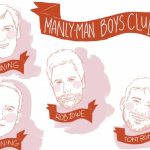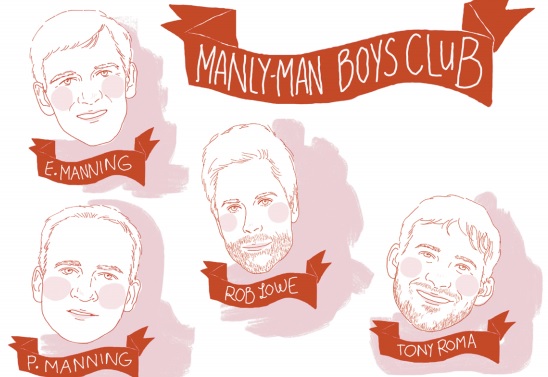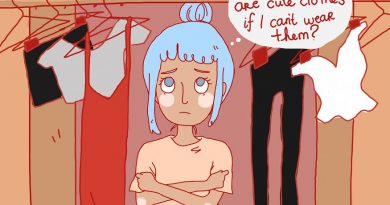Opinion: DirecTV’s Sexism — Against Men
It started innocently enough. Actor Rob Lowe, looking handsome and confident, urging viewers to not be like his less-suave alter egos. These alter egos included “meat-head guy,” “painfully socially awkward guy,” and “peaked in high school guy.” According to Cinema Blend, these commercials were a huge hit for the satellite company, bringing DirecTV from a loss of 28,000 customers to a gain of 149,000 new customers.
It is no surprise these commercials were so popular. The GTL (gym, tan, laundry) Italians of MTV’s Jersey Shore provided years of entertainment. In addition, nobody wants to be that guy forever reminiscing about days long past him in a Napoleon Dynamite Uncle Rico-style sadness. DirecTV even added “too much body hair guy” and “overly paranoid guy.” DirecTV was making money and viewers were loving the new commercials. Everything was going quite well. Then the 2015 NFL season started.
Who doesn’t love seeing their favorite football player in goofy commercials? The Manning brothers were hilarious in the “Football on Your Phone” and “Fantasy Football Fantasy” music videos. But the writers for DirecTV are either running out of ideas or running in the wrong direction with their ideas because the traits of the “guy no guy wants to be” suddenly became less funny. Along came “skinny legs guy,” “high voice guy,” “petite guy,” and “arts and crafts guy.” These characteristics are not cliché and obnoxious. These qualities are feminine.
Maybe it was the use of football players instead of actors, or the fact that all of the celebrities used in these commercials have been men, but the execs at DirecTV have certainly begun to tailor their ad campaigns to one specific demographic (straight men who watch football) with one very clear message: “Women, feminine men, creeps, and weirdos have cable. Don’t be like them. Be a man, like me, a football player.” Subtly and sneakily—the definition of the word insidious—these commercials became sexist and offensive.
Comcast has complained about DirecTV commercials, but for legal reasons. They argue that the claims DirecTV are making about having a stronger signal, more football games, superior sound and picture quality, and higher customer satisfaction than cable are misleading and false.
Comcast’s complaints did not bother DirecTV much. They simply pulled the disputed commercials at the end of the first quarter of 2015. Now they are back with different claims and a different message.
There is a petition on Change.org to pull the Randy Moss “petite guy” commercial off the air. Supporters of the petition claim that instead of focusing on voluntary lifestyle choices, DirecTV has now begun targeting physical characteristics that men have no control over. In particular, “petite Randy Moss” is portrayed as pathetic, lonely, and inferior to his taller, more masculine counterpart. It’s a similar story for scrawny arms Rob Lowe and scrawny legs Peyton Manning. “Arts and crafts Tony Romo” is portrayed as a full-on weirdo creep and Peyton Manning insinuates that singing in a barbershop quartet is simply shameful. The petition was started by Paul Bogen of Woodinville, Washington and currently has 194 supporters of the 200 desired.
DirecTV should stick to silly commercials that apply to nobody in particular. Those were funny and worked. On the other hand, if they would like to target an audience broader than just football-watching men did, they could use women in their commercials. Women watch television too—even football. Since DirecTV cannot seem to come up with any more non-offensive, inclusive commercial ideas, here is a free one.
“Hi, I’m Anna Faris and I have DirecTV.” (You know she would be up for this.)
“And I’m super-jealous Anna Faris and I have cable.” (Anna shows up wearing an obnoxiously loud shirt with her and husband Chris Pratt’s face on it.)
“I love watching our Seahawks play on Sunday, and with DirecTV we get crystal clear picture and sound for every game.” (Anna at home with Chris, their baby, and family.)
“I love making sure my husband isn’t talking to anyone he’s not supposed to.” (Anna, camouflaged as fruit, watches Chris while he shops in the supermarket.)
“With NFL Sunday Ticket, we can invite all our friends over to watch any game they want.” (Anna and Chris hanging out with friends at home.)
“We have cable, so we have to go out to a sports bar to watch the game when we’re out of town.” (Cute waitress with a tray full of drinks winks at Chris, Anna trips her.)
“Don’t be like this me,” (jealous Anna pushes an attractive jogger into traffic) “get DirecTV.”
This commercial is not offensive because it focuses on a character trait that can be helped (jealousy) and not physical characteristics or particular interests. It is funny (just picture it), has double celebrity power, appeals to both women and men, and still highlights DirecTV’s football package. Some may argue that it perpetuates the stereotype of women being jealous and insecure, but the commercial insists that this behavior is not desirable and is very cliché. Going from “peaked in high school Rob Lowe” to “scrawny arms Rob Lowe” is the equivalent of going from “super jealous Anna” to “flat-chested Anna,” something even DirecTV execs are smart enough not to go near.







